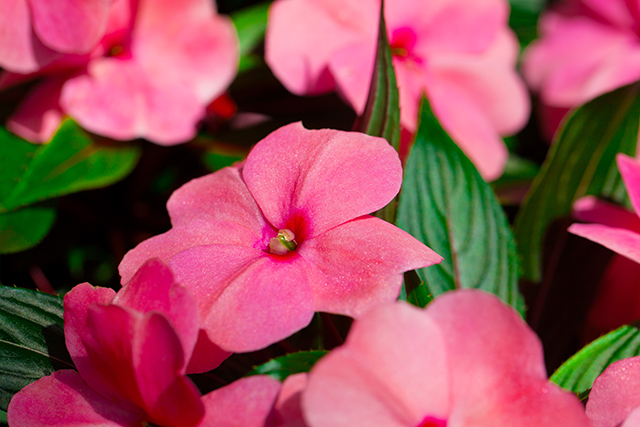Environmental pollution affects the scent of flowers, explaining the decline of various plant species and insect populations
06/13/2018 / By Jessica Dolores

Waking up to the sweet smell of roses on your bedside table, and stepping into water with fragrant rose petals strewn all over the bathtub is sheer bliss. Sadly, these days could be a thing of the past, if we don’t stop air pollution in its tracks. The flowers’ fragrant language is in peril, no thanks to air pollution that turns the flowers’ fragrant messages into gibberish.
Well-known science writer Marta Zaraska says air pollution is not only making it harder for plants to survive, it’s also making it difficult for pollinating insects to tell the difference between plants by the unique fragrances they emit.
Zaraska says plants communicate among themselves through fragrances they release into the air. Reduce the fragrances, and you get mixed-up messages the plants themselves don’t understand. Insects can’t follow scent trails and pollinate flowers to make them bloom.
Jose Fuentes, professor of meteorology and atmospheric science at Pennsylvania State University says air pollutants interact with and break down the plant’s scent molecules, which insect pollinators like bees use to find food. These pollution-tainted scents can confuse bees and make it harder for them to pollinate flowers. This is because the chemical interactions reduce the life span of scent molecules and the distance at which they travel through space.
Fuentes explains that many insects build their nests up to 3,000 feet away from their food source. Air pollution from big cities reduce the distance flower scents travel from 4,000 feet in the 1800’s to only 700 feet these days. Thus, pollinators like bees have a hard time finding flowers to sustain themselves and flowers can’t pollinate to blossom as fully as possible.

The danger here lies in having a shortage of pollinators like bees and other insects that increase production of crops.
This global problem needs worldwide solutions. Flower and plant lovers can do their share in fighting pollution by growing the following natural air purifiers in their own backyard.
- Spider plants — Also known as air plants, these grow quickly and look good in hanging baskets. They even produce lovely white petals. These plants have over 200 species and are strong enough to survive with little care. They don’t harm children and animals too.
- Dracaenas — This newbie green thumb’s dream comes in all shapes, sizes, and colors. The tall corn plant bears interesting markings, while the rainbow plant sports bright purple hues. Keep the soil damp but not soggy. Excess water will kill this houseplant. Keep this one away from your pet dog or cat, though.
- Golden pothos — This plant, also known as devil’s ivy, is one of the most effective indoor air purifiers. It survives various conditions and can grow to up to eight feet tall. Just water it when the soil gets dry. You can also trim the tendrils when the plant gets too big. This plant is called devil’s ivy because it harms dogs and cats.
- Chrysanthemums — Chrysanthemums or mums are one of the best air purifiers. They get rid of common toxins as well as ammonia. The flower blooms for about six weeks. These flowers purify the air.
- Bamboo palms — This sturdy plant is tall and elegant. It bends, but seldom breaks when the wind blows. It prefers bright, but not direct sunlight. This plant needs a lot of care, though. Bamboo palms moisturize the air, and are especially great during the dry winter months.
We can’t beat air pollution by ourselves. But we can take small steps to help clean the environment and make it easier for flowers to bloom and bees to pollinate them.
After all, who wouldn’t want to wake up to the smell of fragrant flowers, and get a bouquet of roses on a bright spring morning?
Sources include:
Submit a correction >>
Tagged Under:
air pollutants, air-purifying plants, chemical interactions, flower fragrances, flower scents, flowers, honeybees, pollinating insects, pollination, scent molecules, scent trails
This article may contain statements that reflect the opinion of the author





















